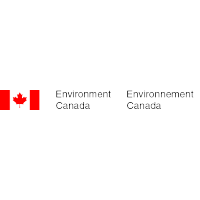Many individuals, landowners and community members, have been involved in activities related to the conservation of these species and their habitats, including stewardship, monitoring and education. The following organizations, along with these individuals, form a strong group that is involved in ACPF work in NS.
Atlantic Coastal Plain Flora Recovery Team, established in 1995, is a group of individuals that provides advice and guidance on all aspects of the conservation and recovery of the ACPF species at risk. Team membership consists of representatives from provincial and federal government departments, several different non-government organizations, industry, and academics. This group of dedicated individuals has assisted in the development of a multiple species Recovery Strategy and Action Plan that identifies everything that we need to do to ensure that these unique plant species to not go extinct and that other ACPF do not get added to the list of species at risk.
 The Mersey Tobeatic Research Institute (MTRI) is a non-profit research co-operative based in Kempt, Nova Scotia whose mission is to promote collaborative research, monitoring and management of natural resources in the Southwest Nova Biosphere Reserve through research and education. MTRI researchers and volunteers are undertaking a project to better understand ACPF populations and their habitats. For more information or to learn how to get involved visit our website. www.merseytobeatic.ca, email
The Mersey Tobeatic Research Institute (MTRI) is a non-profit research co-operative based in Kempt, Nova Scotia whose mission is to promote collaborative research, monitoring and management of natural resources in the Southwest Nova Biosphere Reserve through research and education. MTRI researchers and volunteers are undertaking a project to better understand ACPF populations and their habitats. For more information or to learn how to get involved visit our website. www.merseytobeatic.ca, email
info@merseytobeatic.ca or call 902.682.2371.
 Parks Canada, particularly Kejimkujik National Park and National Historic Site is supportive of recovery and conservation actions for ACPF throughout the Southwest Nova Biosphere Reserve. Kejimkujik Lake is home to one of only two lakes in all of Canada with Water-pennywort and staff and volunteers monitor this population annually to ensure that it is stable. Parks Canada is partnering with MTRI and other partners to increase the stewardship, science and education for these rare and special plants, for which many are found nowhere else in Canada. To learn more and get involved visit the Kejimkujik Stewards Facebook page, www.speciesatrisk.ca, or call 902.682.4007.
Parks Canada, particularly Kejimkujik National Park and National Historic Site is supportive of recovery and conservation actions for ACPF throughout the Southwest Nova Biosphere Reserve. Kejimkujik Lake is home to one of only two lakes in all of Canada with Water-pennywort and staff and volunteers monitor this population annually to ensure that it is stable. Parks Canada is partnering with MTRI and other partners to increase the stewardship, science and education for these rare and special plants, for which many are found nowhere else in Canada. To learn more and get involved visit the Kejimkujik Stewards Facebook page, www.speciesatrisk.ca, or call 902.682.4007.
 The Atlantic Canada Conservation Data Centre (AC CDC), based in Sackville, NB, is a non-profit organization founded by federal, provincial and non-governmental partners to provide data and expertise about species and ecological communities of conservation concern in support of decision-making, research, and education in Atlantic Canada. AC CDC follows methods used by similar organizations (which are generally within provincial or state governments) across North America and southward. AC CDC conducts an extensive program of biological inventories to further the understanding of species and plant community distribution and status and has worked for over 10 years documenting Nova Scotia’s ACPF. You can submit sightings of ACPF species to Submit sightings to ACCDC at http://accdc.com/Data/submit.html or by calling (506) 364-2661.
The Atlantic Canada Conservation Data Centre (AC CDC), based in Sackville, NB, is a non-profit organization founded by federal, provincial and non-governmental partners to provide data and expertise about species and ecological communities of conservation concern in support of decision-making, research, and education in Atlantic Canada. AC CDC follows methods used by similar organizations (which are generally within provincial or state governments) across North America and southward. AC CDC conducts an extensive program of biological inventories to further the understanding of species and plant community distribution and status and has worked for over 10 years documenting Nova Scotia’s ACPF. You can submit sightings of ACPF species to Submit sightings to ACCDC at http://accdc.com/Data/submit.html or by calling (506) 364-2661.
 Nova Scotia Department of Natural Resources co-chairs the Atlantic Coastal Plain Flora Recovery Team, convened the first meeting in 1995, developed the multispecies recovery planning framework, actions and drafts of the recovery strategy, that were later used by Environment Canada and Parks Canada Agency under SARA. NSDNR oversees the listing process for species under the Nova Scotia Endangered Species Act and has produced posters, brochures and a web site about Atlantic Coastal Plain Flora. To learn more about Atlantic Coastal Plain Plants visit www.speciestarisk.ca.
Nova Scotia Department of Natural Resources co-chairs the Atlantic Coastal Plain Flora Recovery Team, convened the first meeting in 1995, developed the multispecies recovery planning framework, actions and drafts of the recovery strategy, that were later used by Environment Canada and Parks Canada Agency under SARA. NSDNR oversees the listing process for species under the Nova Scotia Endangered Species Act and has produced posters, brochures and a web site about Atlantic Coastal Plain Flora. To learn more about Atlantic Coastal Plain Plants visit www.speciestarisk.ca.
 Environment Canada – Canadian Wildlife Service is responsible for the delivery of the Species at Risk Act (SARA) as it related to ACPF (Parks Canada is responsible for Water-pennywort). The Canadian Wildlife Service worked with the NS Government, Parks Canada, and other partners in the development of the recovery strategy and action plan. Current co-chair of the ACPF Recovery Team, Samara Eaton, is a species at risk biologist with the Canadian Wildlife Service. Environment Canada provides support for recovery implementation for ACPF species at risk.
Environment Canada – Canadian Wildlife Service is responsible for the delivery of the Species at Risk Act (SARA) as it related to ACPF (Parks Canada is responsible for Water-pennywort). The Canadian Wildlife Service worked with the NS Government, Parks Canada, and other partners in the development of the recovery strategy and action plan. Current co-chair of the ACPF Recovery Team, Samara Eaton, is a species at risk biologist with the Canadian Wildlife Service. Environment Canada provides support for recovery implementation for ACPF species at risk.
 The Nova Scotia Nature Trust (NSNT) is a non-government, charitable organization dedicated to protecting ecologically significant private land in the province. Since 1994, the NSNT has worked to protect over 5500 acres of conservation lands in NS, including unspoiled lakeshores, old-growth forests, pristine coastal islands, and important wildlife habitat for ACPF and other species at risk. NSNT staff and volunteers monitor rare plants and their habitats in southwest NS, well as monitor NSNT protected properties throughout the province – to maintain the health of the species and habitats on these properties. For more information, or to join the NSNT volunteer team, visit www.nsnt.ca or contact nature@nsnt.ca or (902) 425-5263.
The Nova Scotia Nature Trust (NSNT) is a non-government, charitable organization dedicated to protecting ecologically significant private land in the province. Since 1994, the NSNT has worked to protect over 5500 acres of conservation lands in NS, including unspoiled lakeshores, old-growth forests, pristine coastal islands, and important wildlife habitat for ACPF and other species at risk. NSNT staff and volunteers monitor rare plants and their habitats in southwest NS, well as monitor NSNT protected properties throughout the province – to maintain the health of the species and habitats on these properties. For more information, or to join the NSNT volunteer team, visit www.nsnt.ca or contact nature@nsnt.ca or (902) 425-5263.
 The Tusket River Environmental Protection Agency (TREPA) was formed in 1986 and is involved in environmental protection in southwest NS, particularly Yarmouth County and the Tusket River catchment area. Part of their work includes the protection of ACPF, with an emphasis on ACPF species at risk. They work with local landowners and own and operate the CRK Allen Nature Reserve on Gillfillan Lake, which was established to protect rare ACPF species. For more information visit www.trepa.com or contact John Sollows at nhungjohn@eastlink.ca or 902.742.2802.
The Tusket River Environmental Protection Agency (TREPA) was formed in 1986 and is involved in environmental protection in southwest NS, particularly Yarmouth County and the Tusket River catchment area. Part of their work includes the protection of ACPF, with an emphasis on ACPF species at risk. They work with local landowners and own and operate the CRK Allen Nature Reserve on Gillfillan Lake, which was established to protect rare ACPF species. For more information visit www.trepa.com or contact John Sollows at nhungjohn@eastlink.ca or 902.742.2802.

Universities have played an important role of researching ACPF to understand more about distribution, genetics, and reproduction. Researchers such as Paul Keddy (University of Guelph) and Irene Wisheu (McGill University) published many scientific papers on ACPF in the 1980s and early 1990s. Professors and honours and masters students at Universities in Nova Scotia have studied many aspects of these species including the impact of dams (Nick Hill-Mount St. Vincent and Ed Reekie- Acadia), population genetics (Sara Goodavila - Acadia, Liette Vasseur – St. Mary’s, Ron MacKay- Mount St. Vincent) and well as New Jersey Rush research at Cape Breton University.